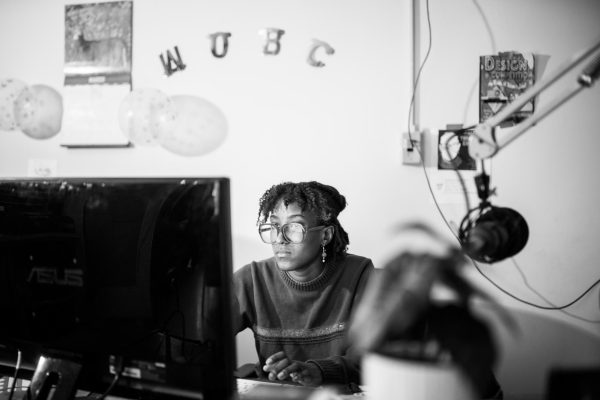Sophomores Find Mostly Positive Support System in SOAR
One of the first things students attending the Sophomore Opportunities and Academic Resources retreat were asked to do was close their eyes and imagine their future. When you wake up in the morning a decade from now, what does the room look like? What is your morning routine? Where is your workplace? What kind of work do you do? By the end of the retreat — “retreat” meaning two days cooped up in the Carnegie and King Buildings — I didn’t have answers to those questions. But I did have a folder full of detailed major pathways and some ideas for study away and Winter Term.
SOAR is, on paper, a cohort-based support system somewhat like Peer Advising Leaders — but instead of learning about the best study spots and campus events, you receive guidance specific to your major and how to work toward a meaningful, rewarding career. As a sophomore who’s a bit further behind the ball than some in terms of academic planning, SOAR sounded perfect.
When I applied to Oberlin, I wanted to major in Cinema Studies. But by the time I got to campus, I was eying the Psychology Department. Then I had a stint as a prospective Creative Writing major before briefly considering Biology. Last semester I settled on Environmental Studies, but I had catching up to do. I signed up for SOAR to help with that.
Wherever the practical was emphasized over the ambiguous and theoretical, SOAR succeeded. For instance, when we broke off into small groups sorted by major, I spent valuable time with students and professors I share academic interests with. Everyone brought a more collaborative and creative energy to these small group activities, which were great for pooling our knowledge and spitballing ideas. This was particularly helpful for me since I knew less about the different ways to approach my major than a lot of the other students. Now I have a local network of students and faculty to bounce ideas off of, get insight from, and brainstorm co-curriculars with.
This dynamic broke down during larger group activities. With no major to unite us, the SOAR leaders stepped in to guide the activities, which ranged from bizarre to stress-inducing. One of the first was a reflection on the complexities of choice, using a dystopian short story we’d been assigned to read before the retreat. It was obvious right away that half the students hadn’t read the story and the other half found it cringe-worthy.
The final event of the retreat was a talk on imposter syndrome. I certainly understood how imposter syndrome works in an academic setting by the end of the talk, but I didn’t really know what to do about it outside of some vague truisms. A friend of mine put it best when she said, “They basically told us we all have imposter syndrome, and we should fix it by not having imposter syndrome.” Not an inspiring note to go out on.
There was the occasional gem, though. Learning how to use Wisr, the online Oberlin alumni network, was useful — especially since I didn’t even know it existed before. But on the whole, there were more misfires than successes outside our major-specific groups.
For a pilot program, I do think that SOAR worked relatively well. It certainly worked better than I expected it to. I needed advice and a game plan, and I received both — along with a handful of uninspired activities. Going forward, however, I think the SOAR organizers could loosen things up. Don’t worry about motivational introductory speeches or vague intellectual exercises. Just get the students in a room with fellow majors and some mentors, and they’ll come out more prepared. I feel much better about my major now than I did before, but I didn’t need to visualize 30-year-old me’s morning routine to get there. SOAR isn’t without its flaws, but it’s off to a promising start


